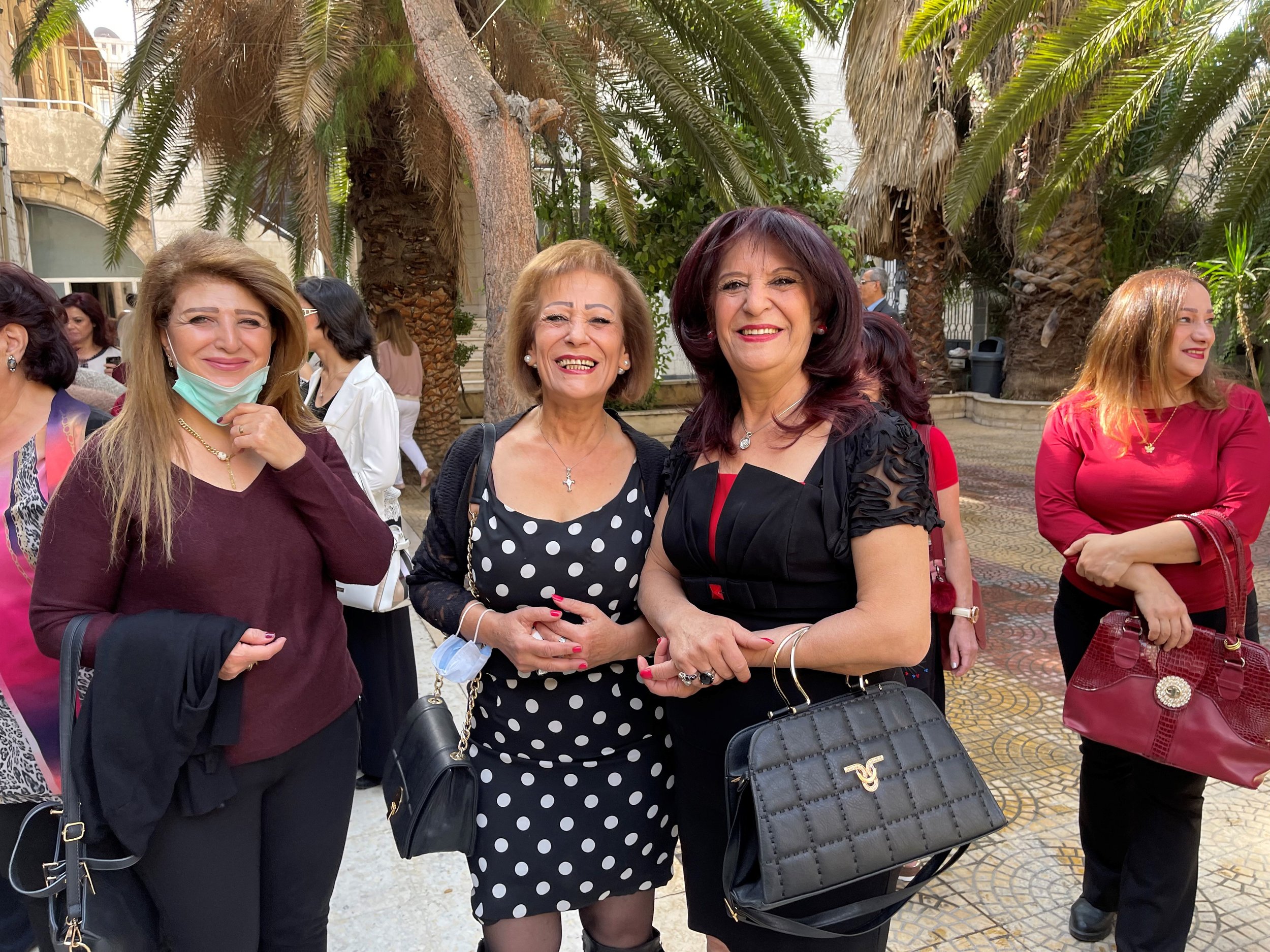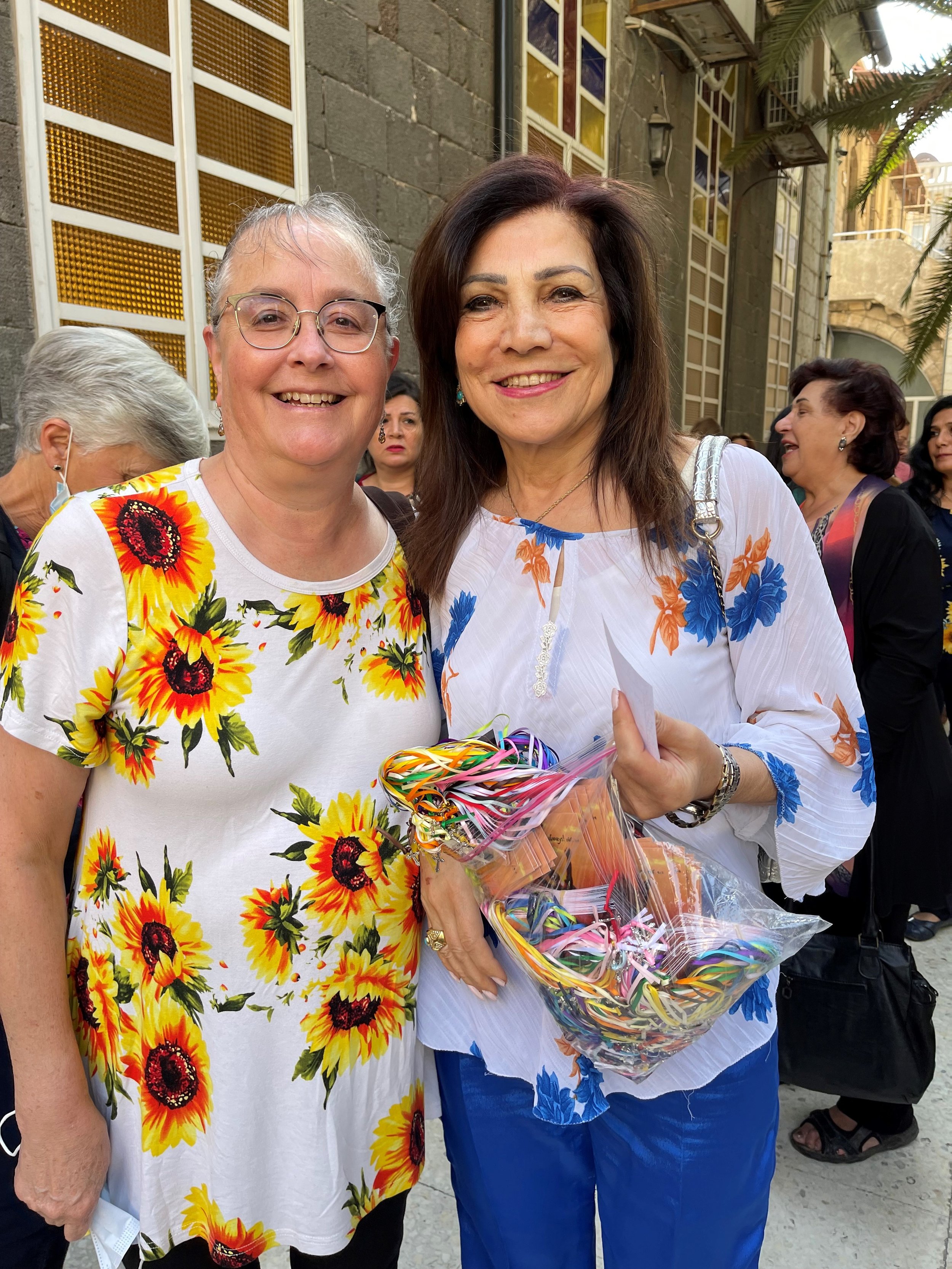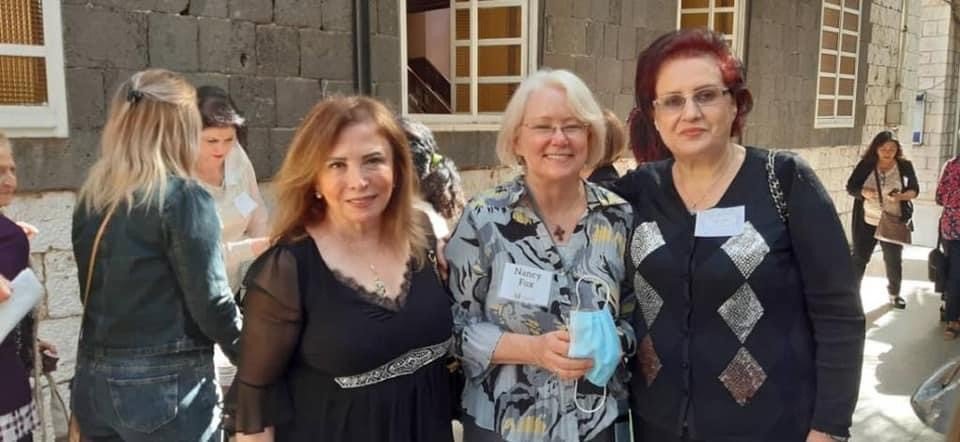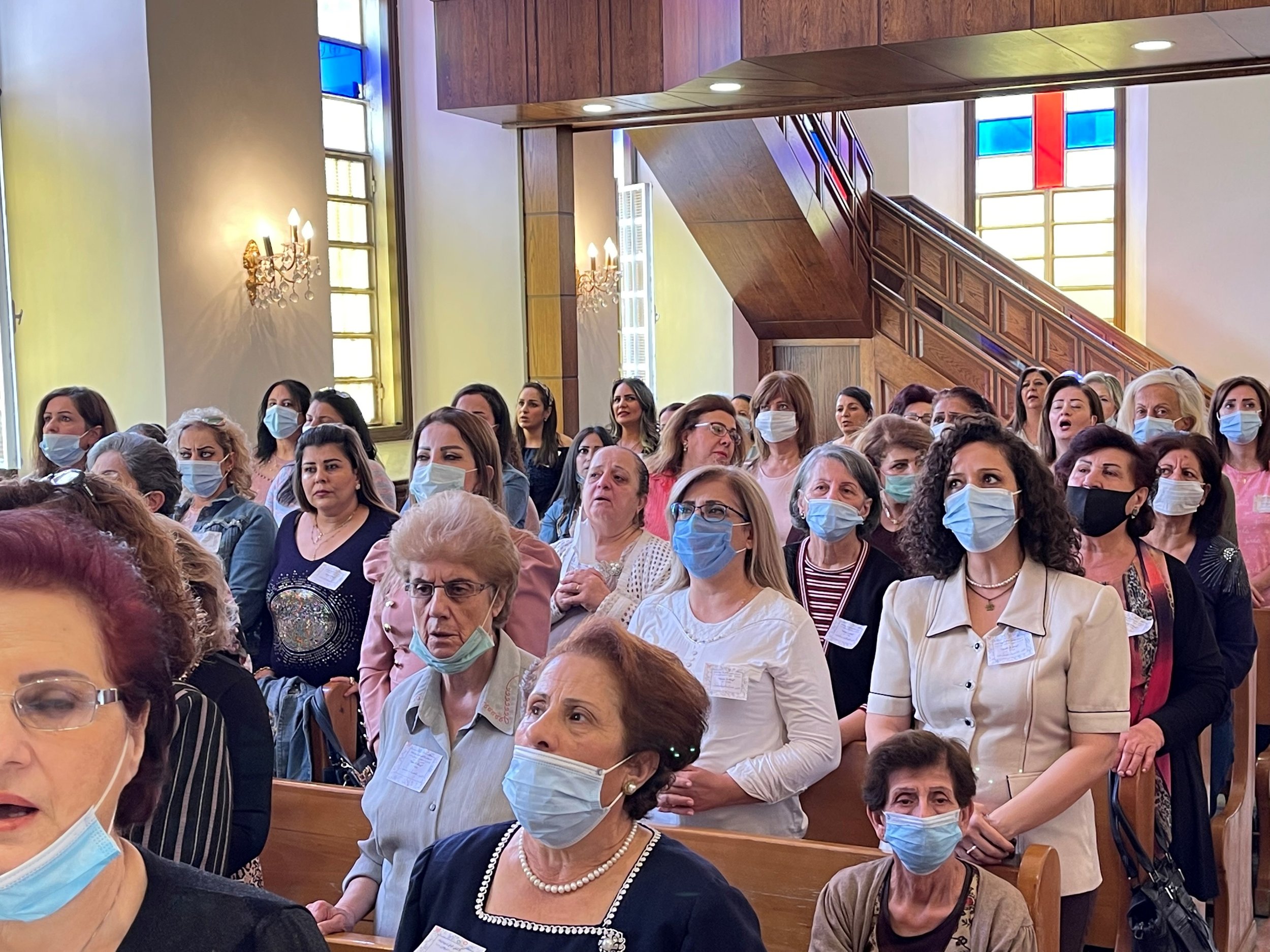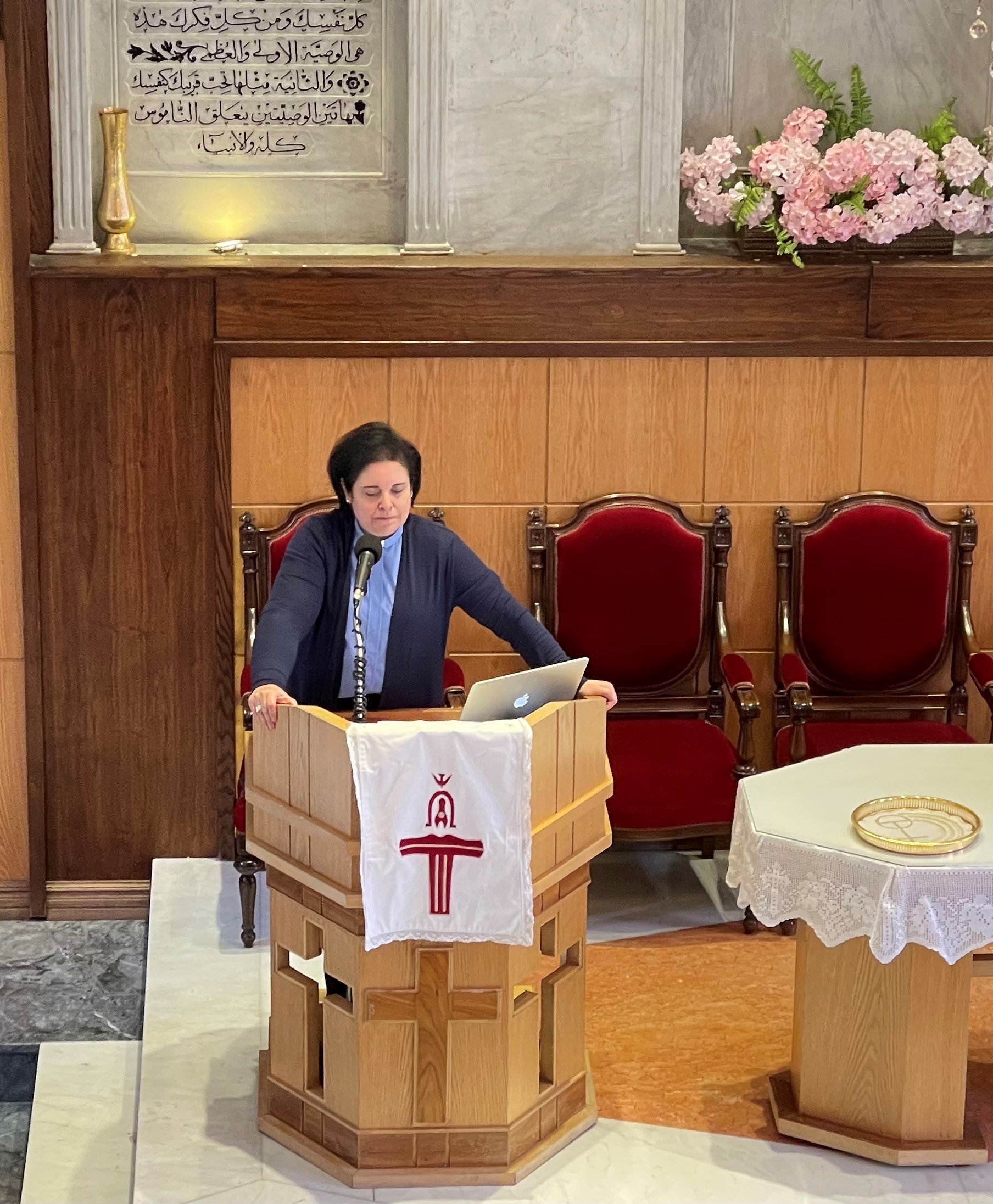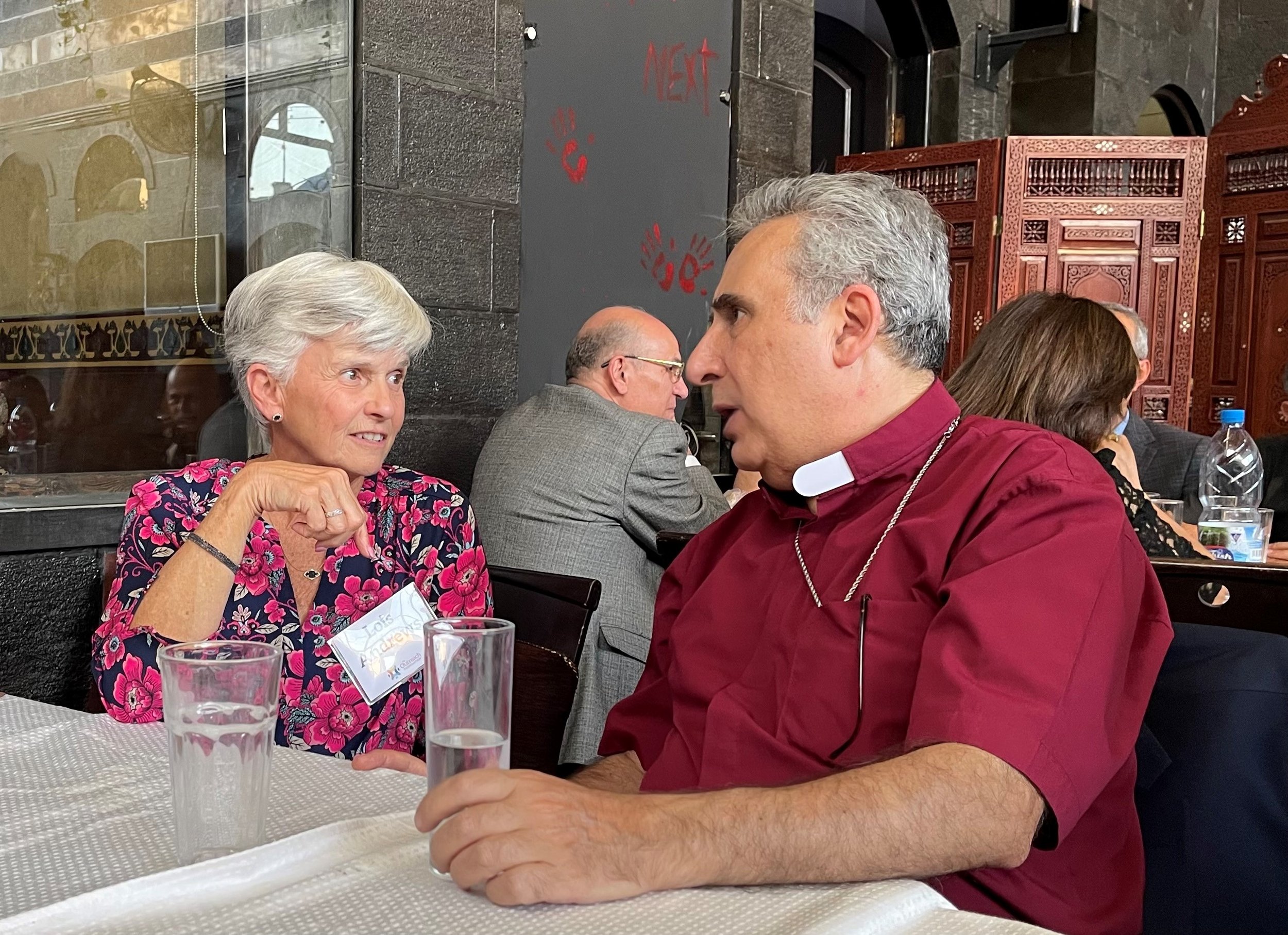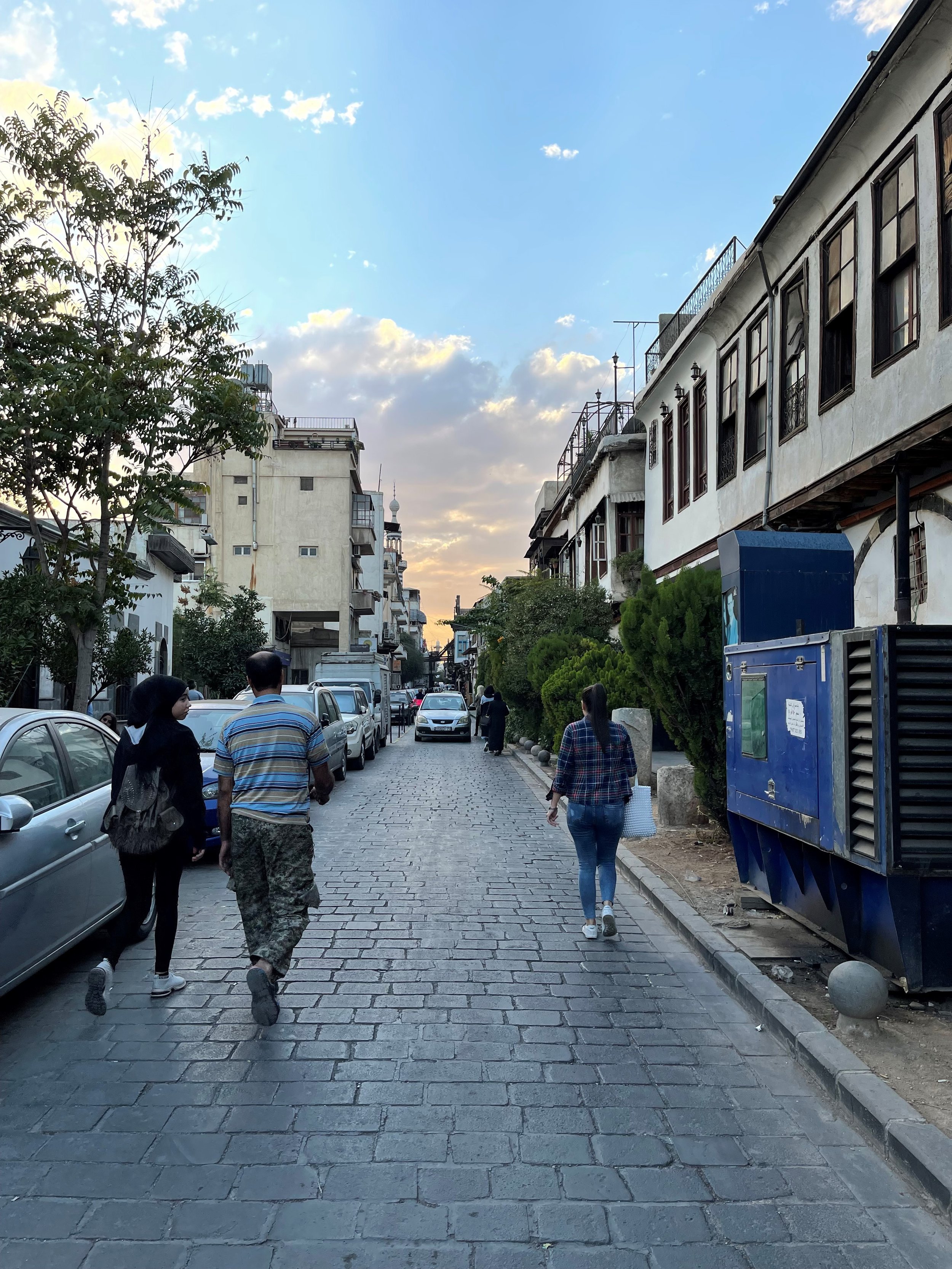Lebanon/Syria #10 - New Spaces
Sing to the Lord a new song; sing to the Lord, all the earth. Sing to the Lord, praise his name; proclaim his salvation day after day. Declare his glory among the nations, his marvelous deeds among all peoples. For great is the Lord and most worthy of praise; he is to be feared above all gods. Psalm 96:1-4
The sweet, sweet spirit of one hundred and fifty women singing to the Lord filled the restored sanctuary of the Damascus Presbyterian Church this morning. We were expectantly joining the women from the Damascus and Kharaba churches for the first women’s conference post COVID. It was a sweet “family reunion” for us and for our sisters in Christ.
On the patio before the worship time began, many greeted us as old friends, and even all the masks could not hide the joy in their eyes and the smiles behind. Those whose English was limited might only express “I love you” as a measure of their joy. Some were able to ask if we were well. Some only hugged and thanked us for coming. We were blessed.
Truly the Lord was in this place. As the Arabic words flashed across the screen in front of gentle background graphics, the women sang with such loud and fervent praise that we could only marvel at their strength and join in their song. It didn’t matter what words we were voicing.
God was praised and His glory declared among the nations.
Several songs were intertwined in worship with words of welcome, prayers, and preaching from various pastors, followed by a wonderful time of coffee and cookies on the patio. Snapping pictures of old and new friends was the main social activity. We are pretty sure the Middle Easterners invented “photo bombing” and it was nearly impossible to get a picture of a single new friend or small collection of family without at least ten more ladies jumping into the picture. More smiles and more evidence that God was enjoying our reunions.
Rev. Najla Kassab, the Director of Education for the National Evangelical Synod of Syria and Lebanon (and the current president of the World Communion of Reformed Churches), offered a Bible study from Luke 7:36-50, the story of Jesus anointed by the sinful woman as the Pharisee Simon looked on in judgment. As we explored this abnormal meeting of these actors in three scenes, we were challenged to see new ideas before us. Each actor faced a test. The woman was challenged every day by the law and society. The Pharisee could not look past the law. How do we look on those that enter our churches? How are we like Simon in being more interested in politics than people?
Najla asked us to think past our own needs and create new spaces in this time of crisis in Syria and Lebanon, and genuinely feel the pain and suffering of others. There was that word “suffering.” We in the west are tempted to believe that not having the opportunity to suffer for Christ in our cultural context gets us off the hook of thinking we must suffer for being known as a Christian.
I am drawn to the command of Philippians 3:10: “I want to know Christ and the power of his resurrection and the fellowship of sharing in his sufferings, becoming like him in death.” This command’s relevance for us as followers of Christ is not dependent on being in a context of persecution but rather depends on being a follower, an imitator of the suffering Christ. We don’t so much suffer for Christ, but rather suffer with Christ.
So how then should we respond to the suffering of our brothers and sisters that we are meeting each day of this journey? Christ suffered on behalf of, and for the suffering world. We the imitators of Christ, are to suffer on behalf of, and for the suffering world. By God’s grace and calling, we willingly enter into his sufferings because we want to be his partner. We do not wait for it to come to us; we choose it. Christ chose suffering, and Christ chose us, and now commands and accompanies us as we suffer with his sufferings.
There is a contemporary song that expresses how to enter into His sufferings. “Father, break my heart for what breaks yours…” His heart breaks for injustice, oppression, the pain of war and destruction, the uncertainty of economic disaster, the insecurity of unstable governments, the death of loved ones in a pandemic, hopelessness. It breaks for those who have loved Him all their lives, and for those who have never known Him. So must our hardened hearts.
The sufferings of the world are not complete; neither are the sufferings of the world’s Savior, so neither are ours. Najla encouraged us to use hospitality as the means of making our humble attempt to encourage and walk with those that suffer. The aim of this hospitality is to change ourselves, inviting ourselves into the world of those who suffer, and feeling the pain of rejection, the discomfort of judgment. How do we change? “I will give you a new heart and put a new spirit in you; I will remove your heart of stone and give you a heart of flesh.” Ezek 36:26.
I Peter 4:12-13 expresses our reward. “Dear friends, do not be surprised at the fiery ordeal that has come to you to test you, as though something strange were happening to you. But rejoice inasmuch as you participate in the sufferings of Christ, so that you may be overjoyed when His glory is revealed.”
These reflections came to me as I joined the “crowd of believers” walking the narrow Straight Street of Damascus to a restaurant where conversation, laughter, hugs, pictures and smiles continued to flood the space. A space of hospitality, a space of respite from the painful world outside, a space for sharing hope for Christ’s redemptive nature. We can be confident He will find a way to reassemble the broken pieces of this country and achieve His purposes.
by Lois Andrews, First Presbyterian Church, San Diego, Calif.

